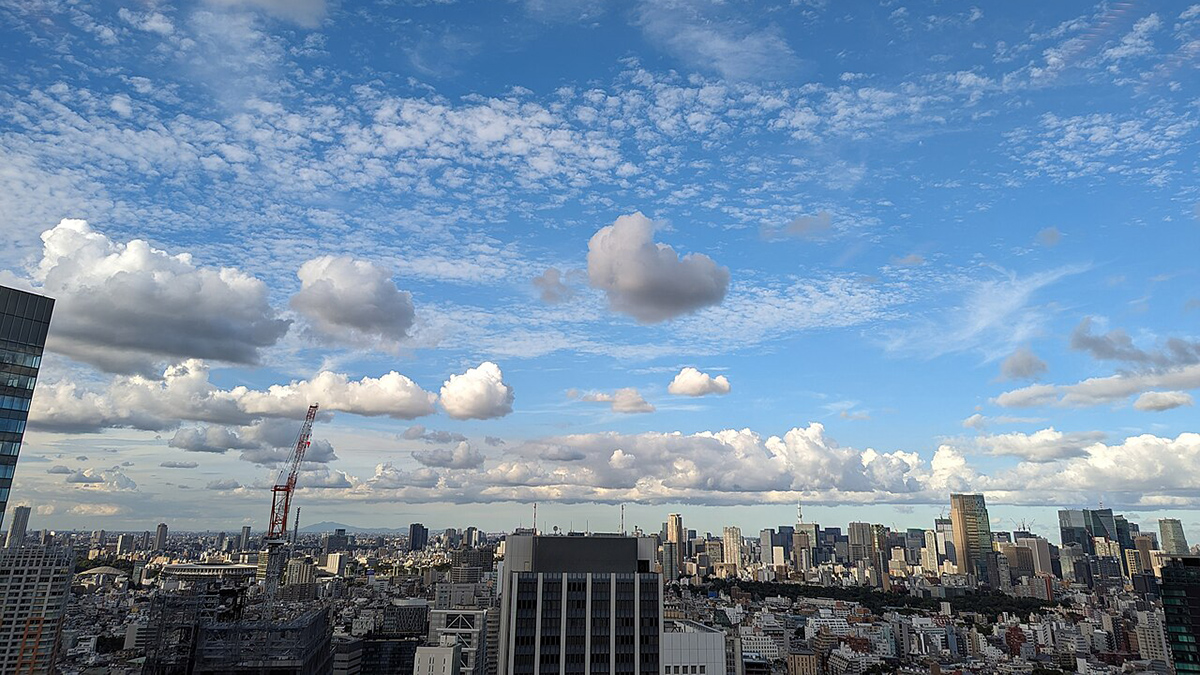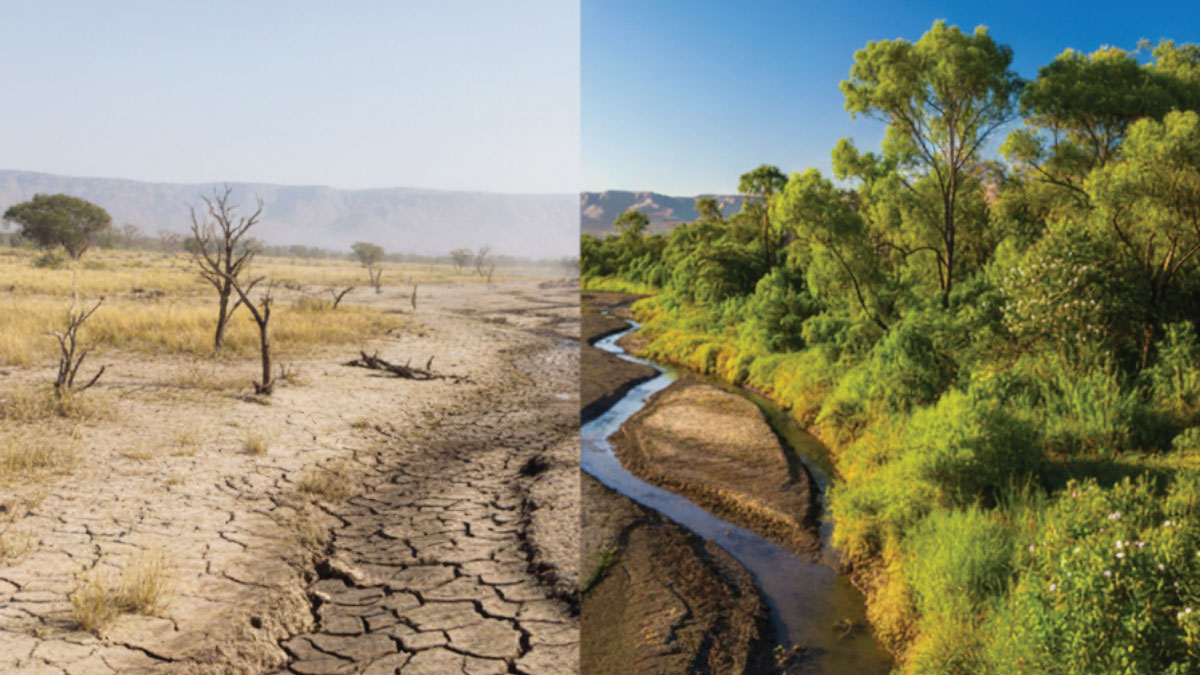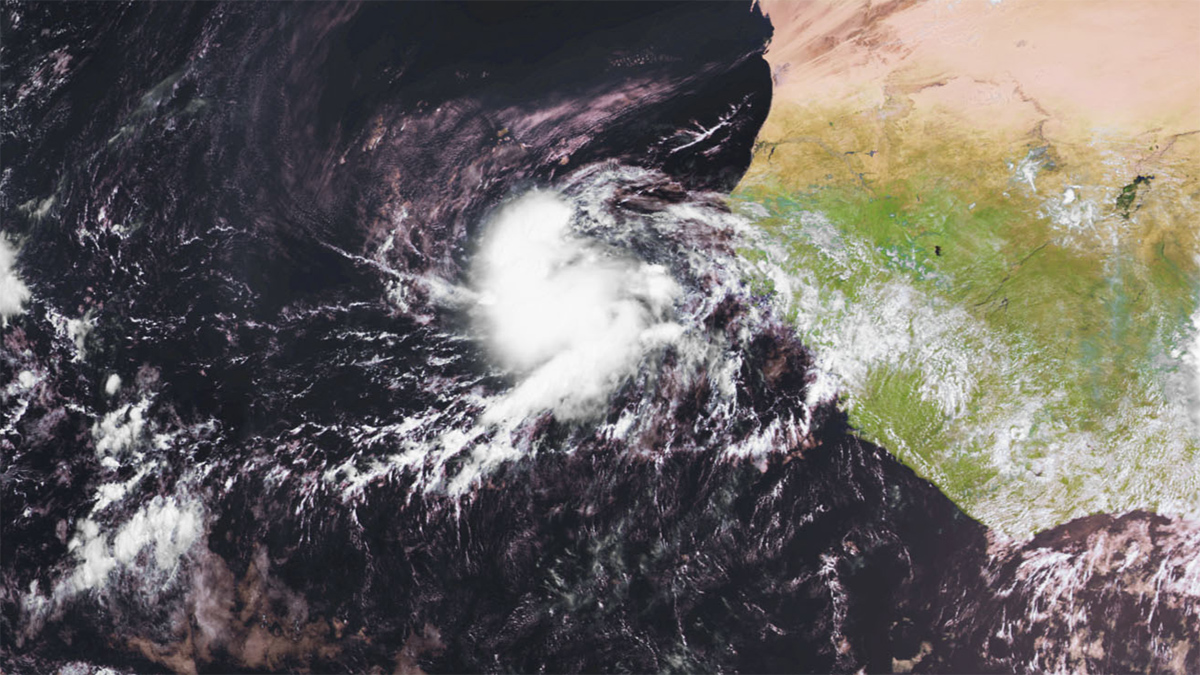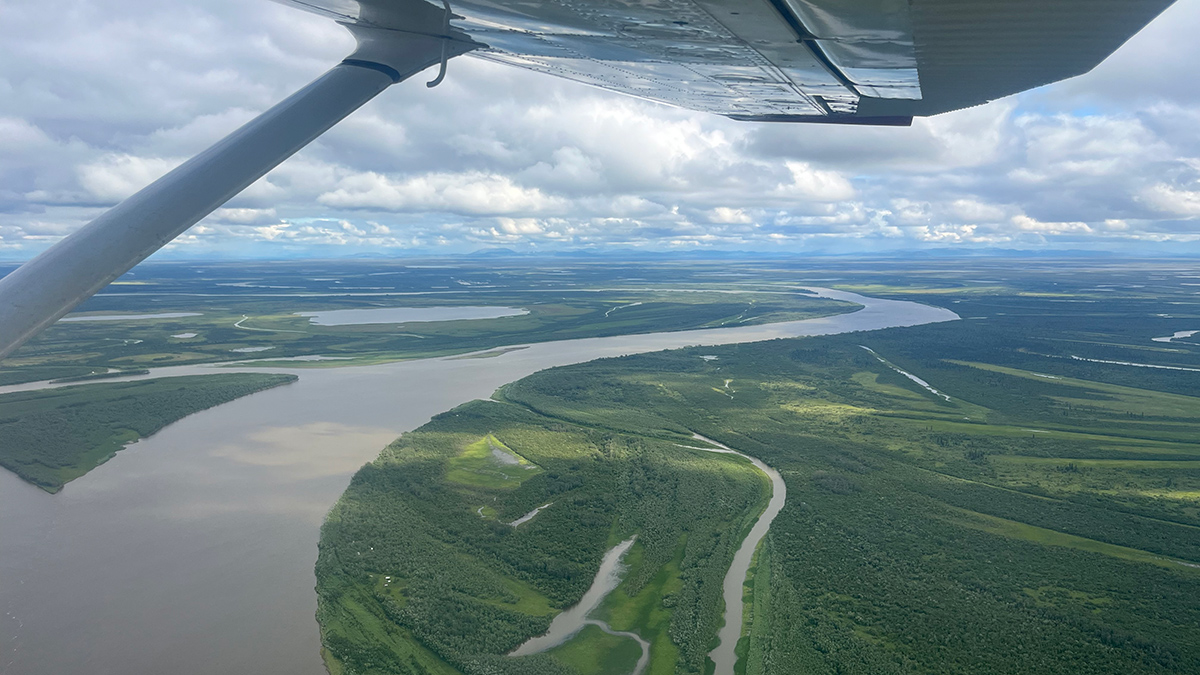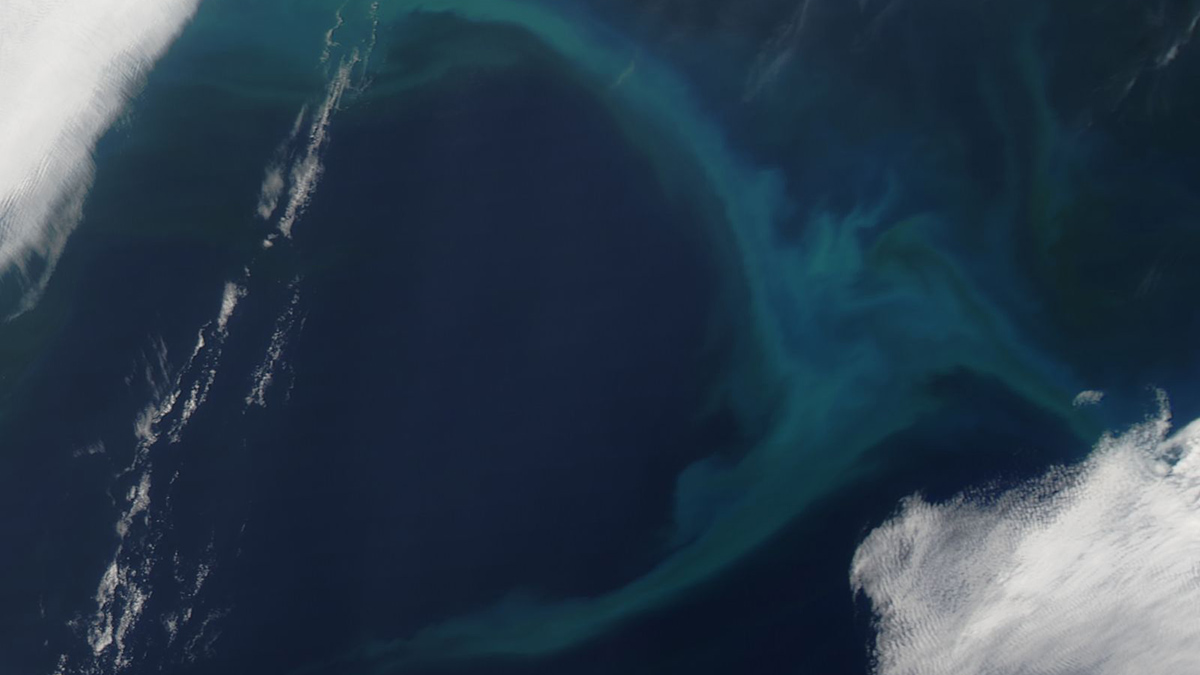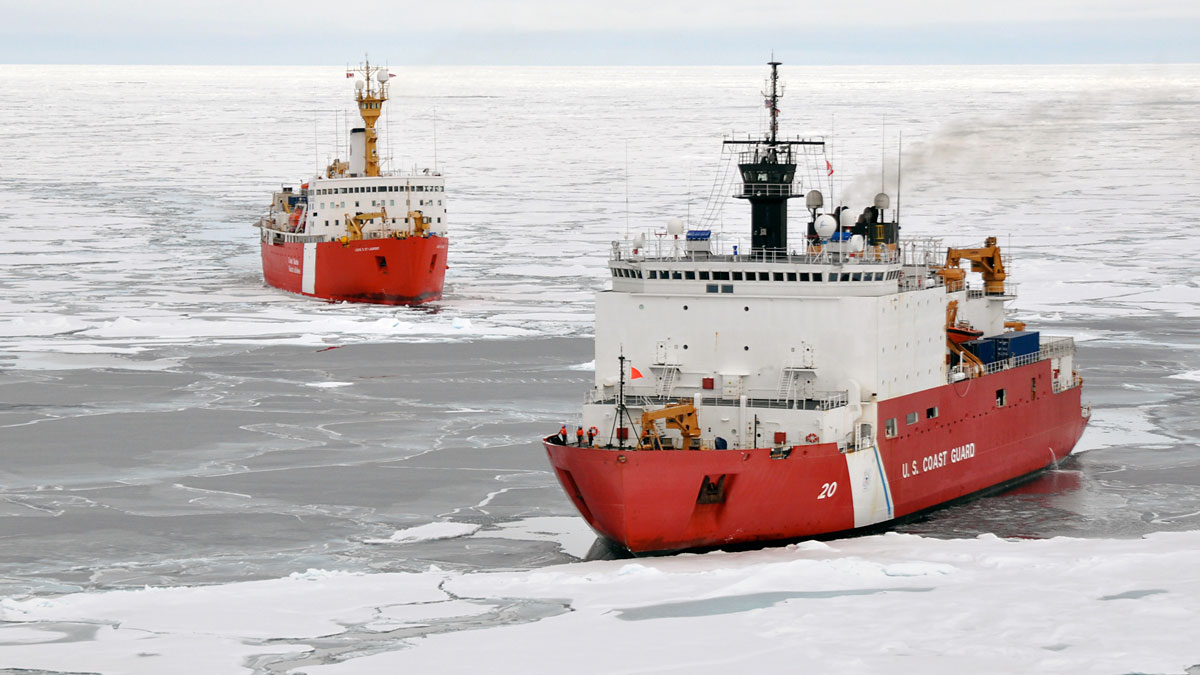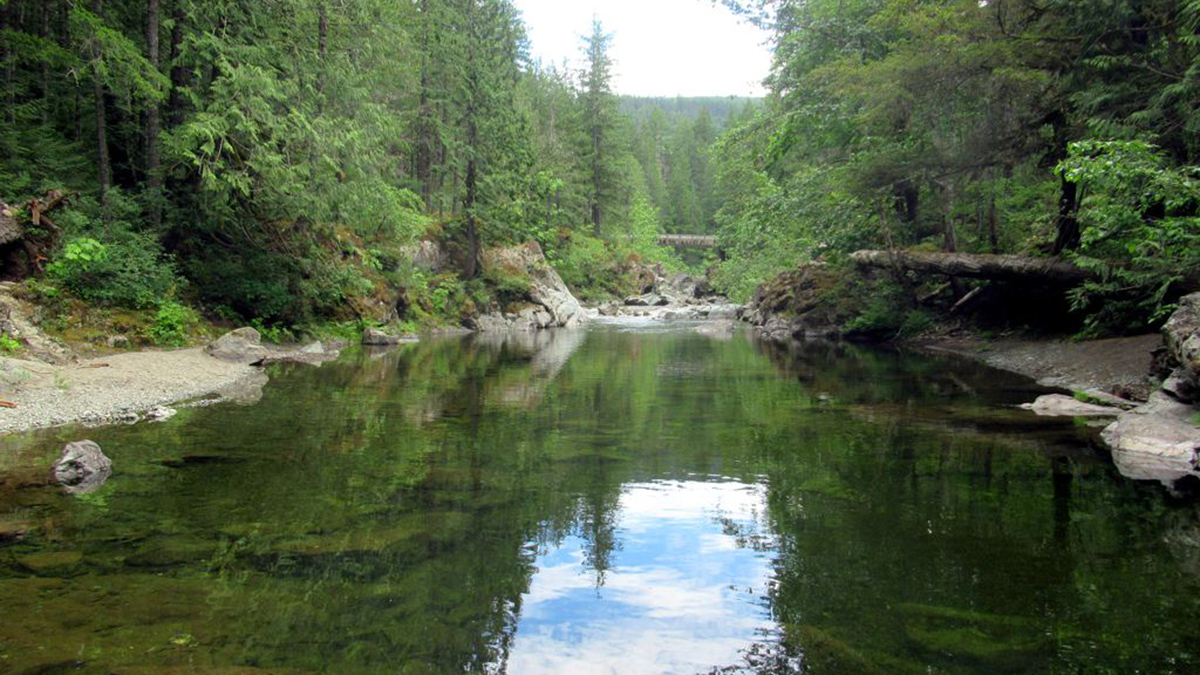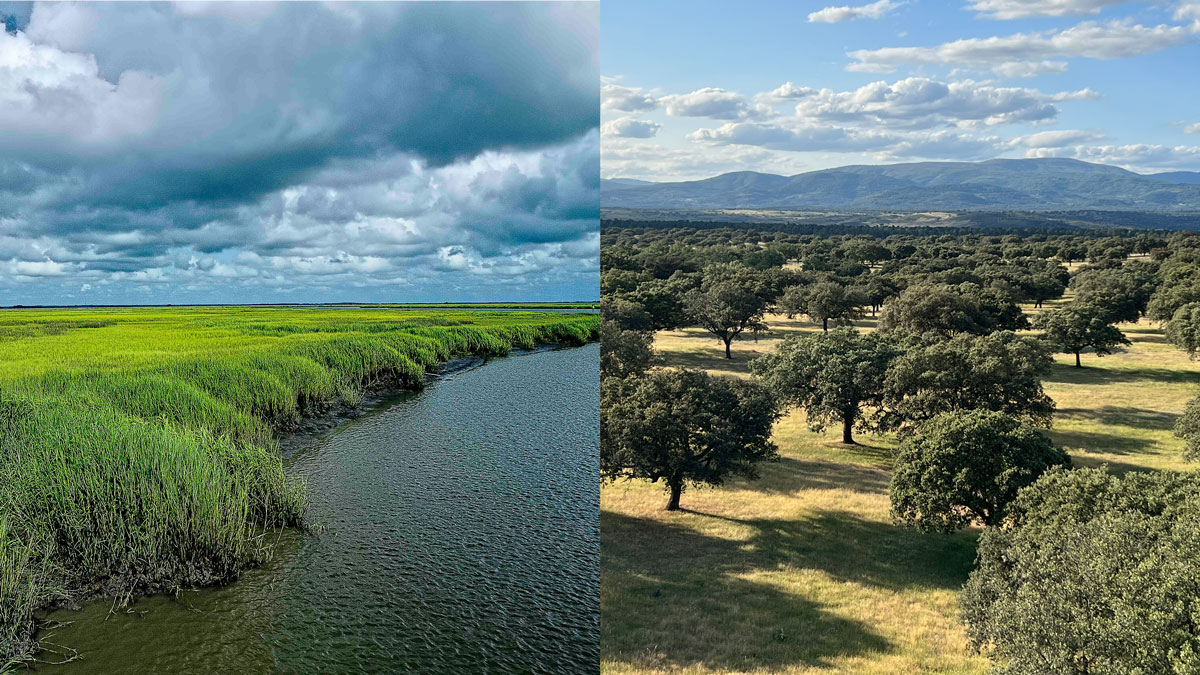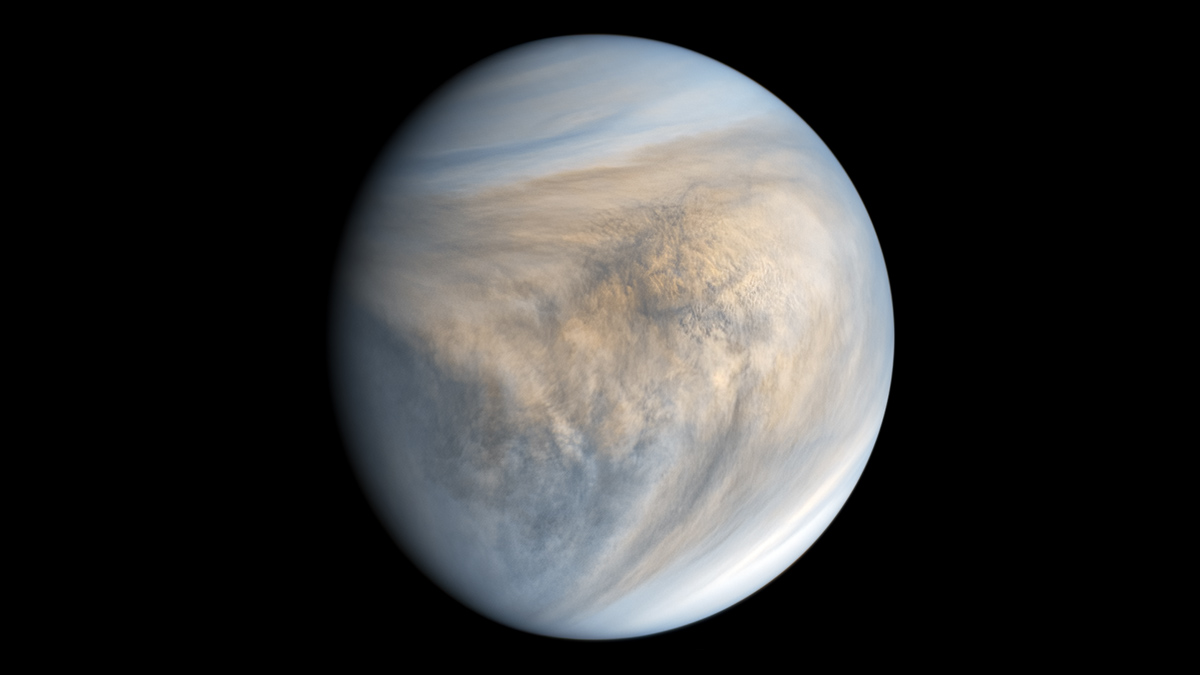Researchers found the unprecedented 2023 East Asian marine heat wave increased land temperatures and humidity by up to 50%.
Research Spotlights
Research spotlights are plain-language summaries of recent articles published in AGU’s suite of 24 journals.
An Ecosystem Never Forgets
A new study in southwestern China shows how ecosystems may exhibit “hydrological memory,” which affects how they react to extreme climate events such as heat and drought.
Warming May Make Tropical Cyclone “Seeds” Riskier for Africa
Intensified hurricane precursors may linger longer over the continent, worsening extreme flooding hazards.
Climate Modeling for Communities, with Communities
End users, such as Indigenous community members developing climate adaptation efforts, make better use of climate models when researchers collaborate with them from the start.
Wintertime Spike in Oceanic Iron Levels Detected near Hawaii
Seasonal rainfall and runoff of sediments from the Hawaiian Islands could be responsible for the previously undetected peak.
Tiny Turbulent Whirls Keep the Arctic Ocean Flowing
Centimeter-sized turbulence controls the rate at which the Arctic Ocean churns.
Watershed Sustainability Project Centers Place-Based Research
A community science project supports an innovative watershed management plan.
Understanding Flux, from the Wettest Ecosystems to the Driest
Pulses of activity, from tides to precipitation swings, play a crucial, changing role in ecosystems worldwide.
Maybe That’s Not Liquid Water on Mars After All
A “very large roll” of a radar instrument offers new insight into a highly reflective area near the Martian south pole.
Key Driver of Extreme Winds on Venus Identified
A new study suggests that a once-daily atmospheric tidal cycle may be a bigger driver of rapid Venusian winds than previously thought.

